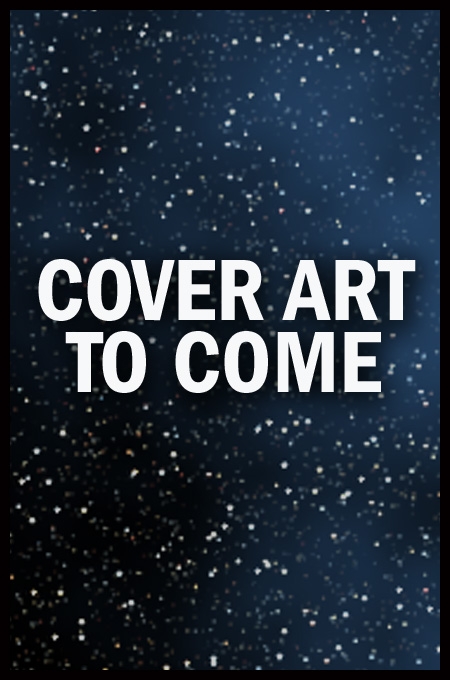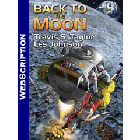THE SECOND TIME AROUND—IS HARDER . . .
Decades after the last footprints were left on the Moon, the U.S. was preparing to return to the Lunar surface in a new class of rockets, when the mission suddenly became much more urgent. It would have to be a rescue mission.
Unbeknownst to the rest of the world China had sent its own Lunar expedition. A manned expedition. Until a distress call was received, no human outside of China even knew that the mission was manned—or that their ship had crash-landed and couldn’t take off again.
Time was running out, and if the four Chinese astronauts were to be rescued, the American lunar mission would have to launch immediately, with only a skeleton crew. Once the heroic U.S. astronauts were underway the army of engineers and scientists back home had the daunting task of deciding what equipment could be left on the Moon to permit the Lunar lander vehicle vehicle to lift safely from the Moon with the two U.S. astronauts and the four stranded Chinese taikonauts! Could the U.S. mount such a mission successfully—and would thousands of years of instilled honor “allow” the Chinese astronauts to accept a rescue?
ABOUT THE AUTHORS
Travis S. Taylor—“Doc” Taylor to his friends—has earned his soubriquet the hard way: He has a doctorate in optical science and engineering, a master's degree in physics, a master's degree in aerospace engineering, a master's degree in astronomy, and a bachelor's degree in electrical engineering. Dr. Taylor has worked on various programs for the Department of Defense and NASA for the past sixteen years. He's currently working on several advanced propulsion concepts, very large space telescopes, space-based beamed energy systems, and next generation space launch concepts. He has appeared in several episodes of the History Channel’s Universe series. He lives in Auburn, AL with his wife Karen and their daughter.
Les Johnson is a NASA physicist, manager, author, husband and father. By day, he serves as the Deputy Manager for the Advanced Concepts Office at the NASA George C. Marshall Space Flight Center in Huntsville, Alabama, one of the coolest jobs in the universe. In the early 2000s, he was NASA’s Manager for Interstellar Propulsion Research and later managed the In-Space Propulsion Technology Project. He was technical consultant for the movie Lost in Space and has appeared on the Discovery Channel series, “Physics of the Impossible” in the “How to Build a Starship” episode. He has also appeared in three episodes of the Science Channel series, Exodus Earth. In his spare time he writes popular science books and articles, including Solar Sails: A Novel approach to Interplanetary Travel, Living Off the Land in Space: Green Roads to the Cosmos and Paradise Regained: The Regreening of Earth.
Listen to the authors discuss the book here on the Baen Free Radio Hour.
-
Good once it gets goingThe book took quite a long time to get to the major plot point. You can tell that the authors love talking about space and space technology and space economics and blah, blah, blah. If that stuff is interesting to you, then the first 16 chapters will be interesting. Otherwise, they drag a bit, and could have been very, very harshly edited.
But once you get past the launch of the Dreamscape with its passengers, things suddenly get much more interesting. It's still highly technical, which I like--very, very hard near future science fiction, written by the most qualified people. But now all the technical details have something to do with the plot.Posted on
-
Product Review
Posted on
-
Product ReviewI really liked the story but have to agee with Ian. In my blog post I said that Return to the Moon is a plea to return to the moon wrapped around an exciting story. I loved it but I did think that Taylor and Johnson were preaching to the choir and the choir does not have much influence. Most people don
Posted on
-
Product Review
Posted on
-
Product Review
Posted on
-
Product ReviewA term Doc Travis uses in the book is "believers". I think this book is an essential read for believers, and unfortunately probably will not attract an audience beyond that. Still, I hope I'm wrong and that it will create additional believers. We should be out there!!_______________ Thank's Doc :-)
Posted on






